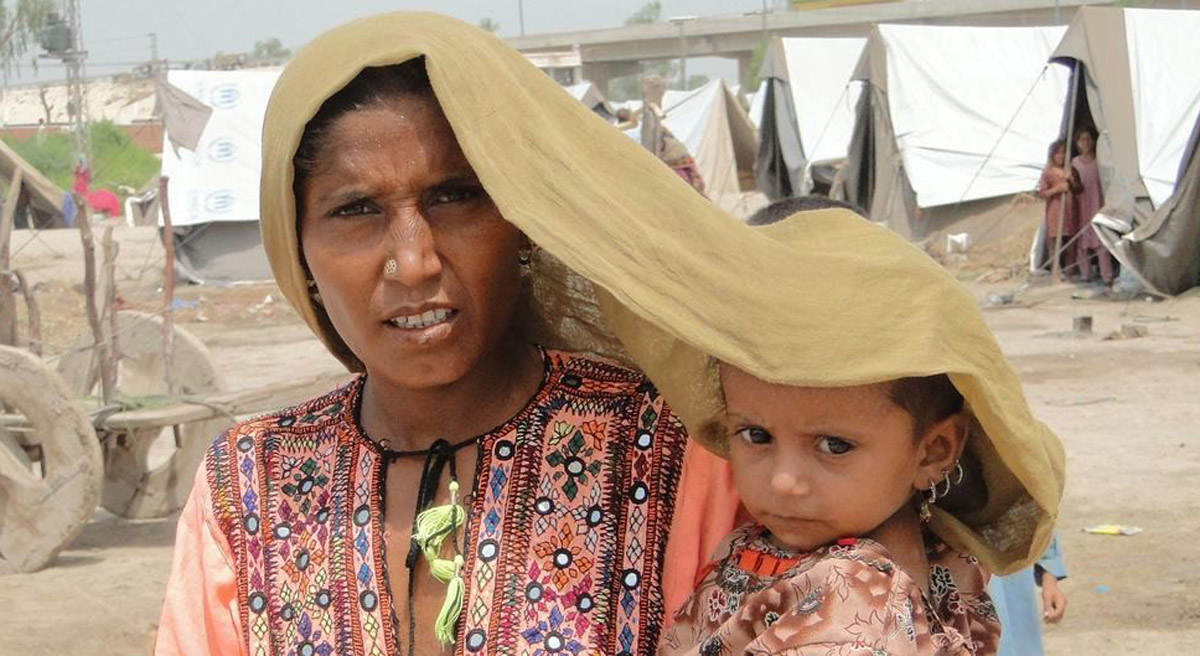UN.ORG, 10 October 2022
Heatwaves already kill thousands of people every year and they risk overwhelming the world’s aid response, unless action is taken to mitigate climate change, the UN’s emergency relief chief said on Monday.
Without immediate financial help for the most vulnerable communities, the world faces a future of “ever larger and deadlier heat disasters”, Martin Griffiths told journalists in Geneva.
“The humanitarian system is not equipped, to handle crises of this scale on our own,” he said. “To avoid a future of recurrent heat disasters, we need massive and targeted investments, especially for the most vulnerable, and we need it now.”
Mr. Griffiths was speaking at the launch of a report published jointly by the UN Office for the Coordination of Humanitarian Affairs (OCHA) and the International Federation of Red Cross and Red Crescent Societies (IFRC).
Extreme risks
The publication, Extreme Heat, Preparing For Heatwaves Of The Future, details recommendations and best practice from developing countries that have put in place measures to support long-term adaptation to climate change.
According to the report, the European heatwave of 2003 was responsible for more than 70,000 deaths beyond what would normally have been expected. And the Russian heatwave of 2010, killed over 55,000 people.
“Almost everywhere that reliable data is available, heatwaves are the deadliest weather-related hazard,” the joint OCHA and IFRC report states, with society’s most vulnerable and marginalized people “pushed to the front lines” of climate change: casual labourers, agricultural workers and migrants.
Also in the crosshairs of extreme heat events are the elderly, children, pregnant and breastfeeding women, who are “at higher risk of illness and death” from higher temperatures.
Rich pickings
Although the world’s richer nations are better-equipped to protect themselves from furnace-like temperatures in coming years, this is not true for developing countries, where the combined effects of “warming, ageing and urbanization” are expected to hit hard, in line with the Sixth Assessment report of the UN Intergovernmental Panel on Climate Change (IPCC).
“Projected future death rates from extreme heat are staggeringly high – comparable in magnitude by the end of the century, to all cancers or all infectious diseases – and staggeringly unequal, with people in poorer countries seeing far greater levels of increase,” the report states, citing research by the US National Bureau of Economic Research.
Informal urban and other settlements that share many characteristics with camps in humanitarian settings are at particularly high risk, the report warns.
Highlighting forecasts from the Urban Climate Change Research Network, it also notes a projected “700 per cent global increase in the number of urban poor people living in extreme heat conditions by the 2050s”, with the largest increases expected in West Africa and Southeast Asia.
Equally worrying is the reminder from OCHA and the IFRC that an extreme heat event that would have occurred once in 50 years in a climate where there was no human influence is now nearly five times as likely.
The regions where the impacts of intolerable temperatures are “already emerging” are identified as the Sahel and South and southwest Asia. According to the report, a rising number of extreme heat events is expected to induce “large-scale suffering and loss of life, population movements and further entrenched inequality”.


